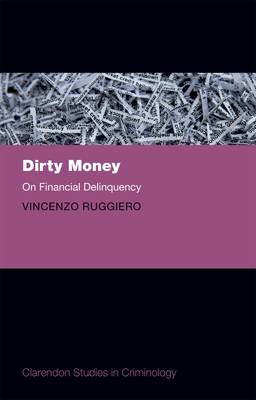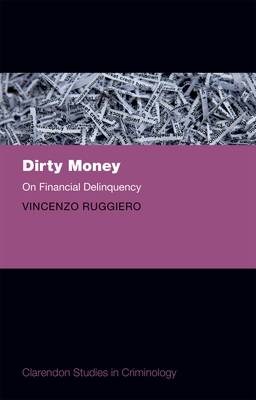
- Retrait gratuit dans votre magasin Club
- 7.000.000 titres dans notre catalogue
- Payer en toute sécurité
- Toujours un magasin près de chez vous
- Retrait gratuit dans votre magasin Club
- 7.000.0000 titres dans notre catalogue
- Payer en toute sécurité
- Toujours un magasin près de chez vous
Description
Navigating financial crashes of the Late Middle Ages up to the present day and analysing them through the lenses of classical, positivist, functionalist and Marxist criminology, Dirty Money: On Financial Delinquency explores the growth of grey areas in the financial world and our understanding, or misunderstanding, of financial delinquency. Pope Francis, while denouncing the incapacity of governments to reduce poverty and fight the exploitation of cheap labour, has also condemned greed, repeating several times the old medieval adage: money is the excrement of the devil. This distinction between clean and excremental, pure and impure, informs the symbolic order of many traditional and contemporary societies; however, it can also be used to single out criminal activity as opposed to law-abiding conduct and, in particular, to separate acceptable from unacceptable practices in the economic domain. With a focus on financial crime, whose ambiguity, ubiquity and evolving nature make the separation between acceptable and unacceptable practices inherently problematic, this book examines the process whereby the excrement of the devil was slowly 'freed' from both its sinful and criminal character. It is a study of how human action turns something seemingly benign into an instrument for the production of harm. Its focus, therefore,
is on dirty money - namely the illegitimate appropriation of financial resources by individuals and groups holding expert knowledge and, often, occupying positions of power. The ideological arguments accompanying this evolution are scrutinised, alongside the history of financial initiatives and the accompanying 'crunches'. The struggle juxtaposing criminalization and decriminalization is at the core of all chapters, which analyse a series of major events chronologically, from the exploits of John Law to the deeds of contemporary finance. Analytically located in the area of white-collar crime, Dirty Money examines episodes of financial delinquency and discusses the way in which observers, including criminologists, shape an understanding of their causes and consequences. It will be of interest to scholars and students of criminology, sociology, criminal justice, history, and economics, as well as policy makers, finance professionals, and fraud investigators.
is on dirty money - namely the illegitimate appropriation of financial resources by individuals and groups holding expert knowledge and, often, occupying positions of power. The ideological arguments accompanying this evolution are scrutinised, alongside the history of financial initiatives and the accompanying 'crunches'. The struggle juxtaposing criminalization and decriminalization is at the core of all chapters, which analyse a series of major events chronologically, from the exploits of John Law to the deeds of contemporary finance. Analytically located in the area of white-collar crime, Dirty Money examines episodes of financial delinquency and discusses the way in which observers, including criminologists, shape an understanding of their causes and consequences. It will be of interest to scholars and students of criminology, sociology, criminal justice, history, and economics, as well as policy makers, finance professionals, and fraud investigators.
Spécifications
Parties prenantes
- Auteur(s) :
- Editeur:
Contenu
- Nombre de pages :
- 272
- Langue:
- Anglais
- Collection :
Caractéristiques
- EAN:
- 9780198783220
- Date de parution :
- 05-03-17
- Format:
- Livre relié
- Format numérique:
- Genaaid
- Dimensions :
- 218 mm x 137 mm
- Poids :
- 476 g

Les avis
Nous publions uniquement les avis qui respectent les conditions requises. Consultez nos conditions pour les avis.






